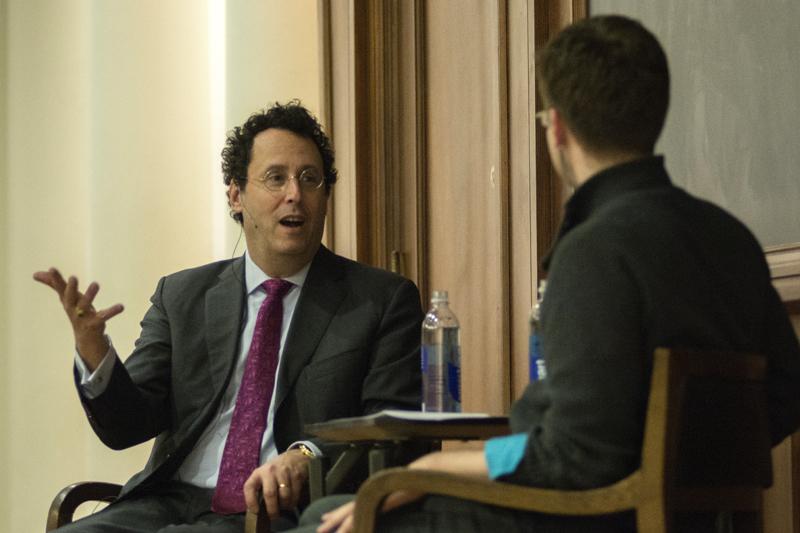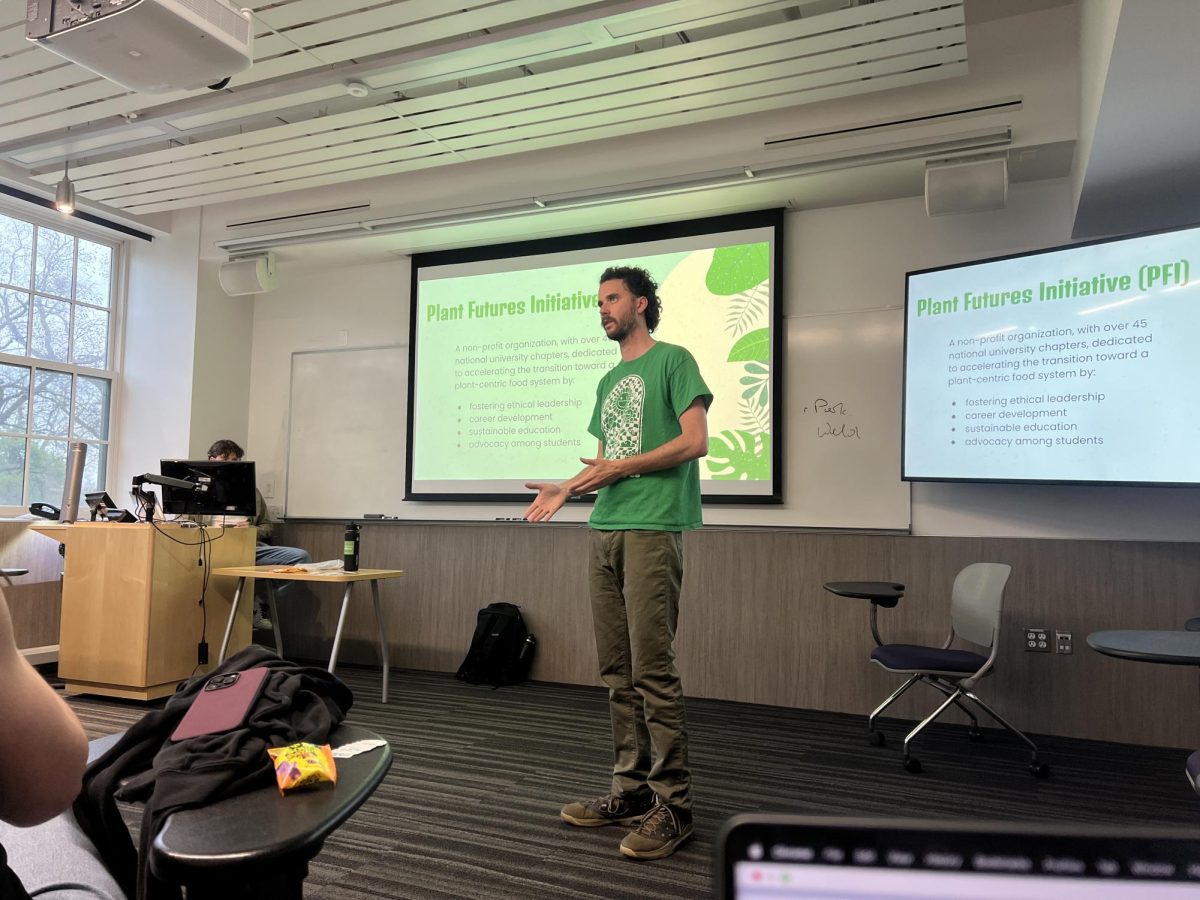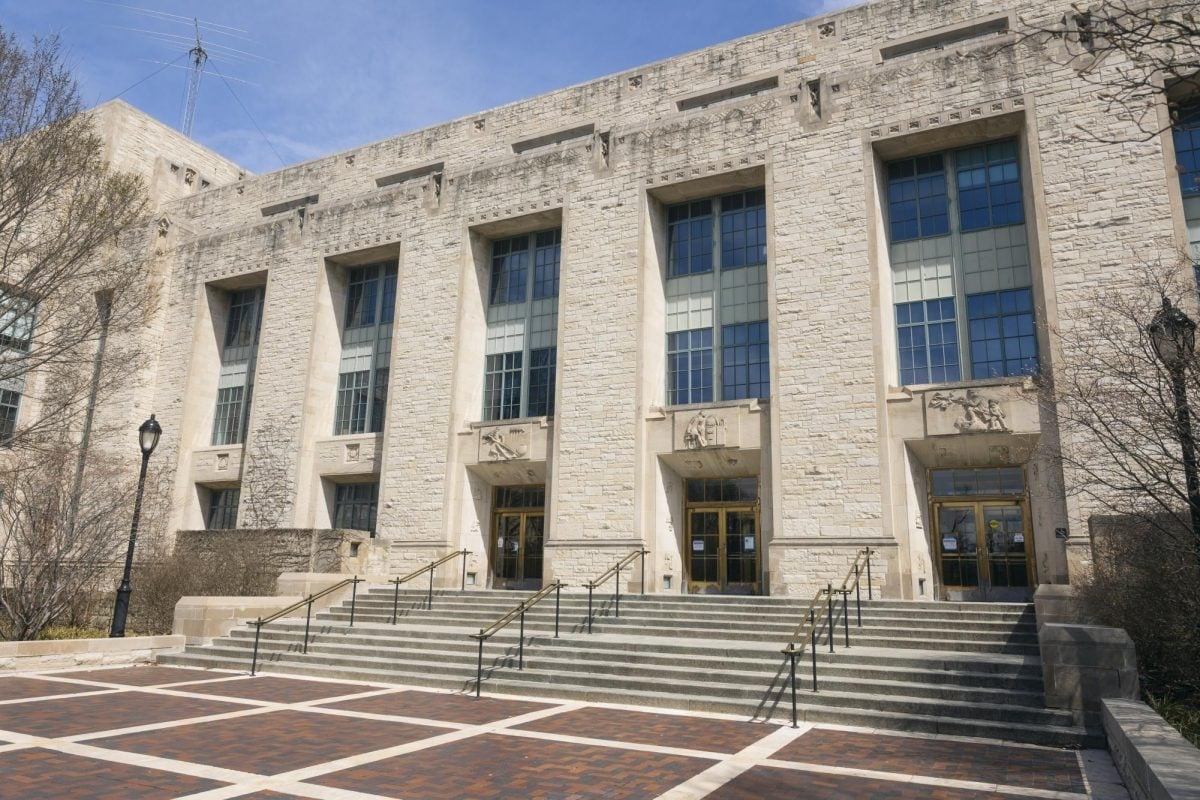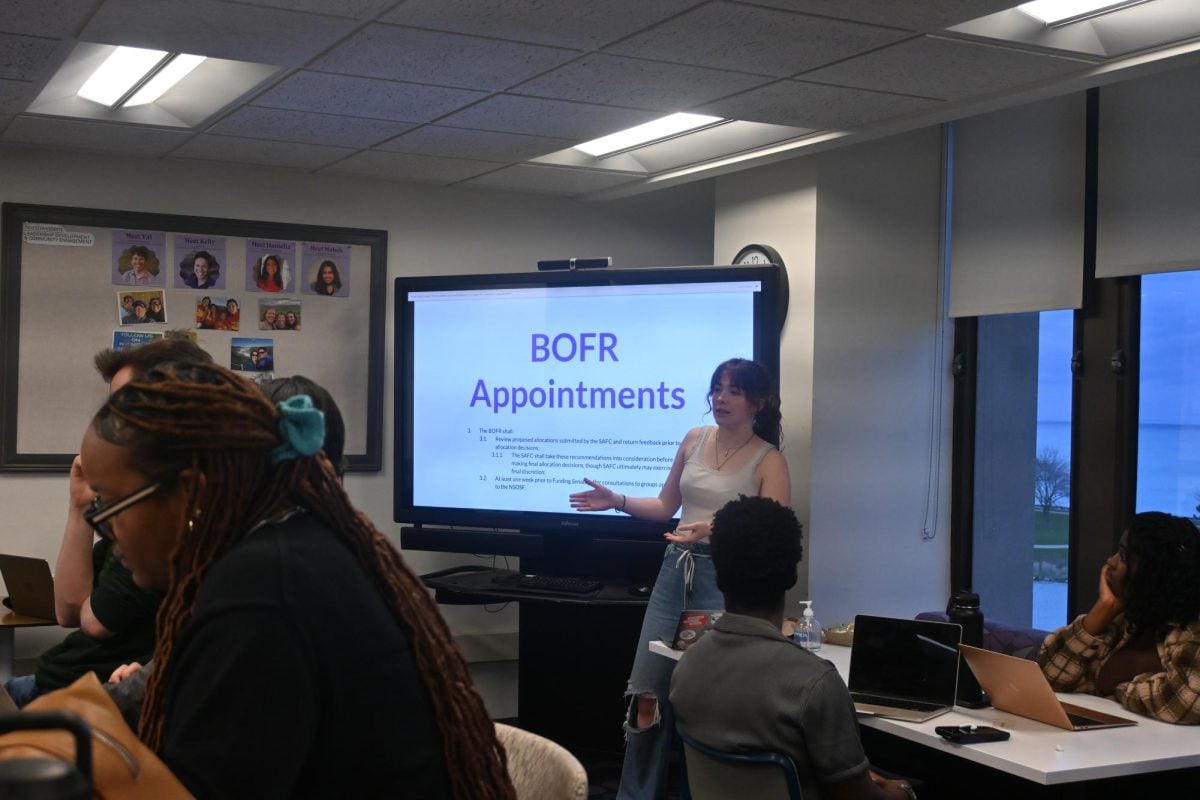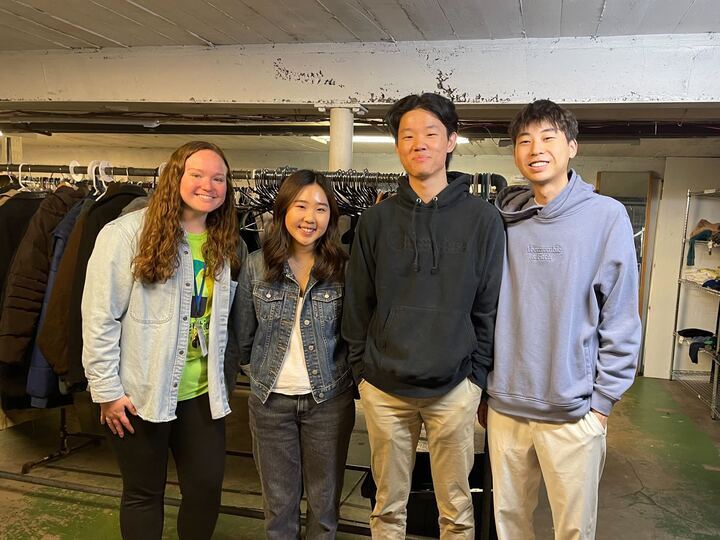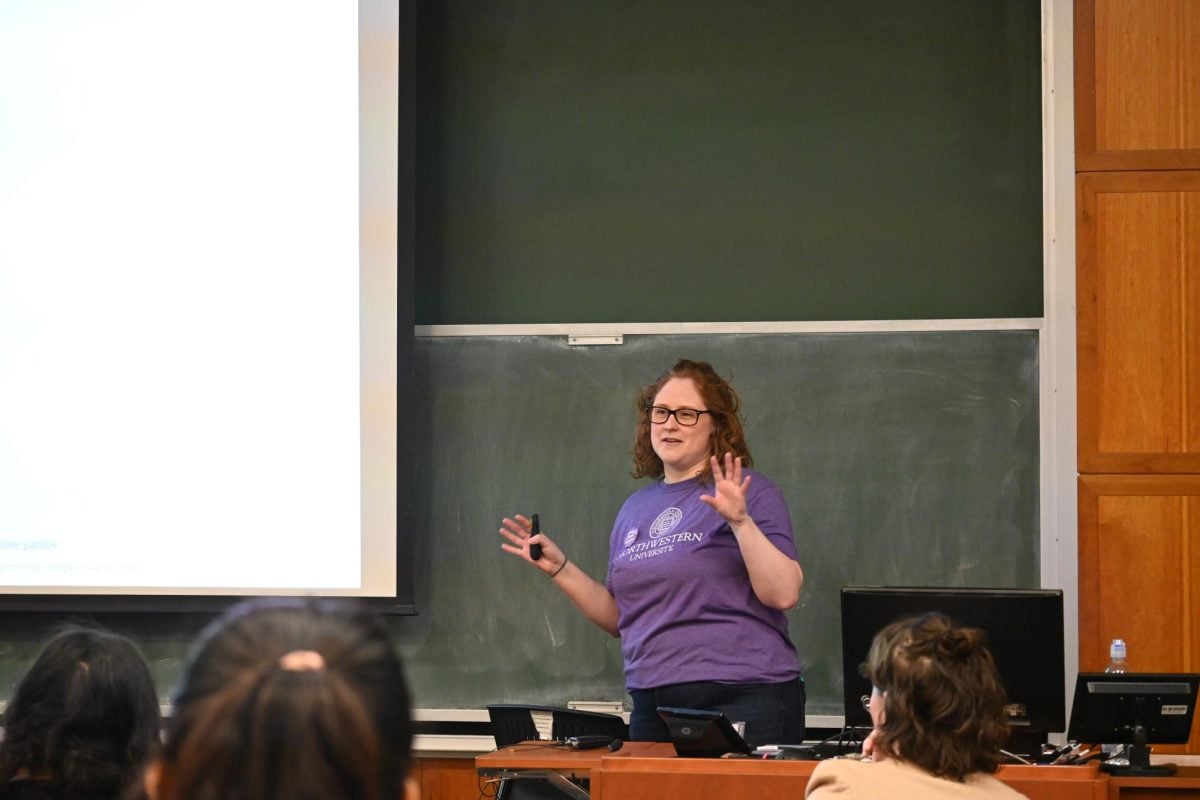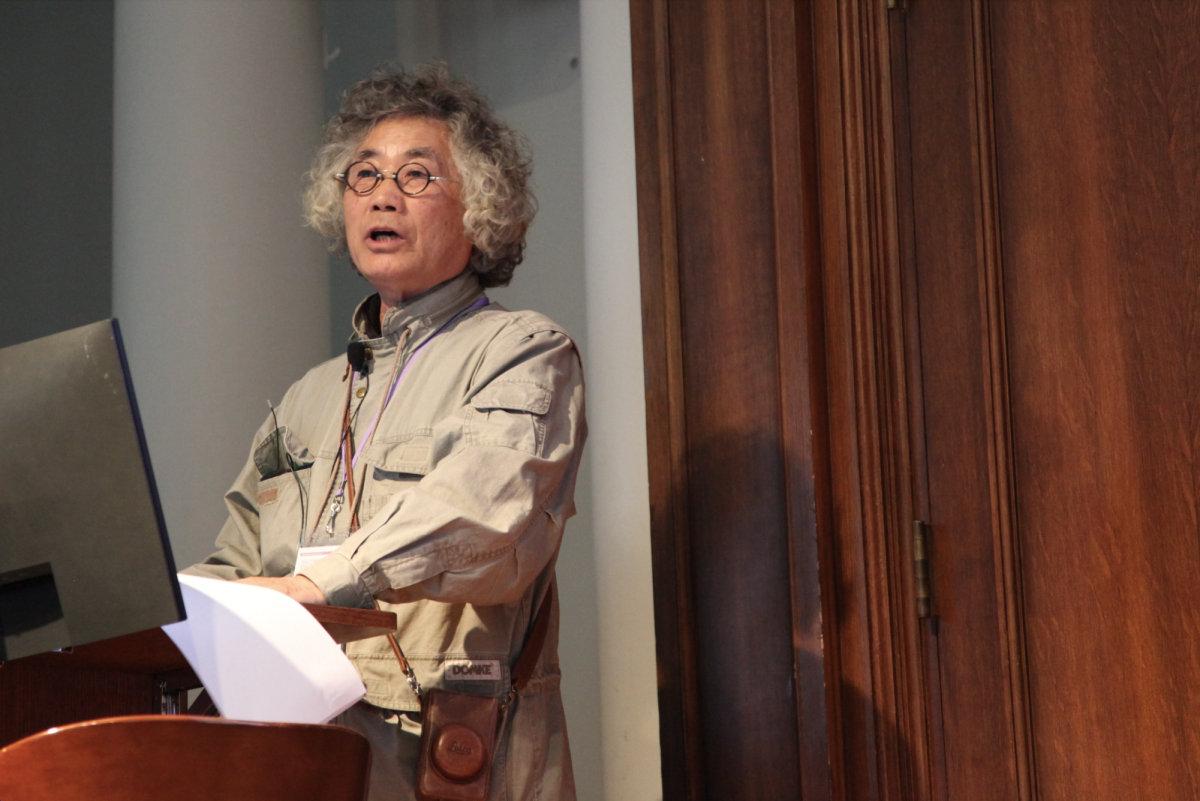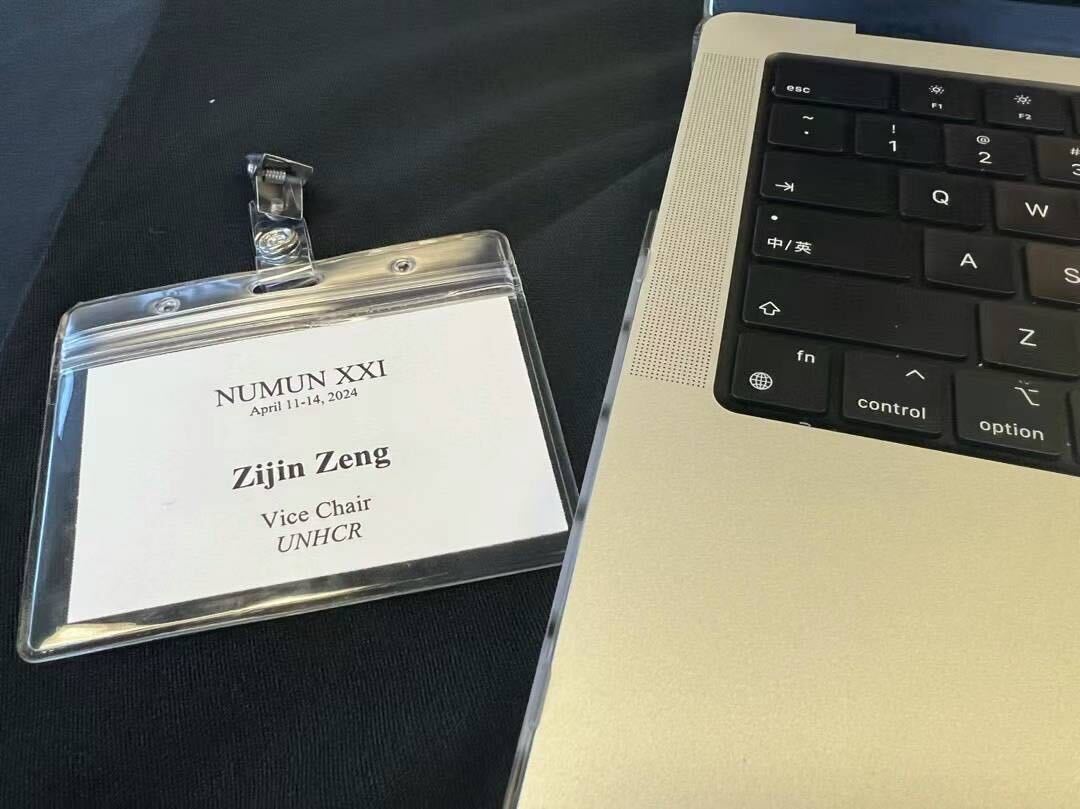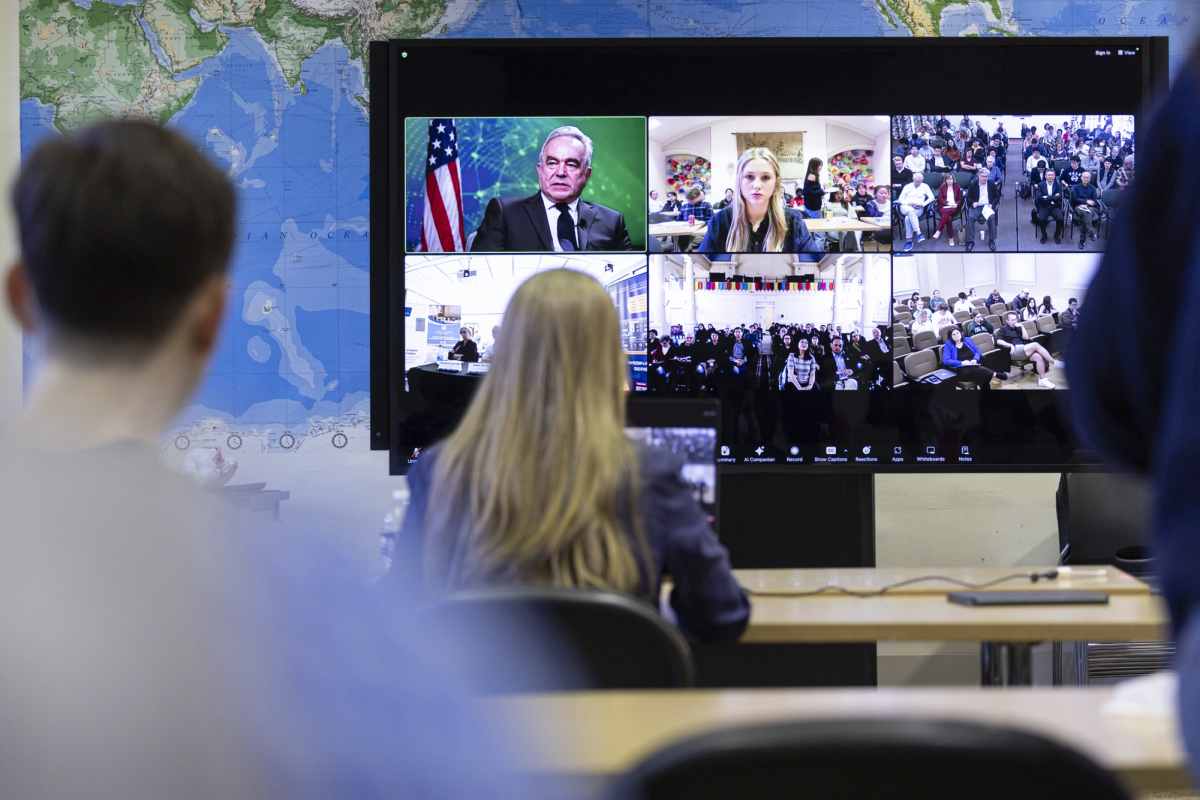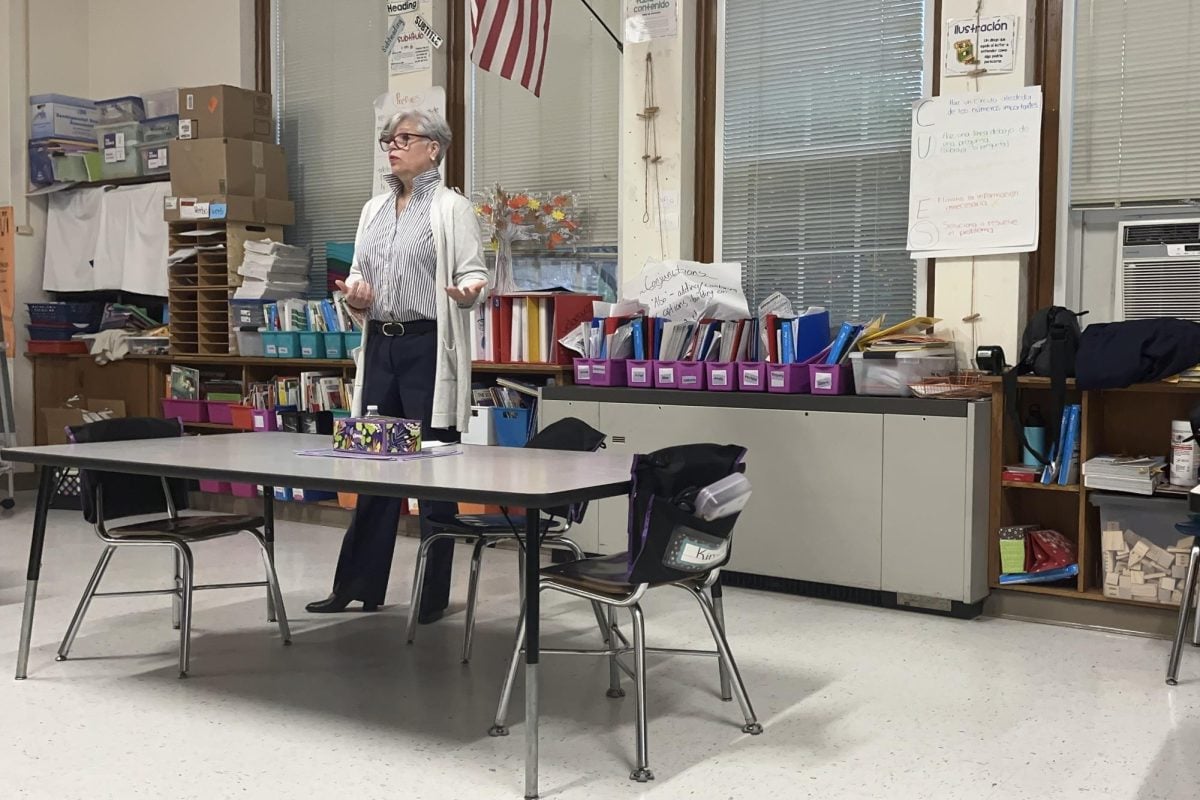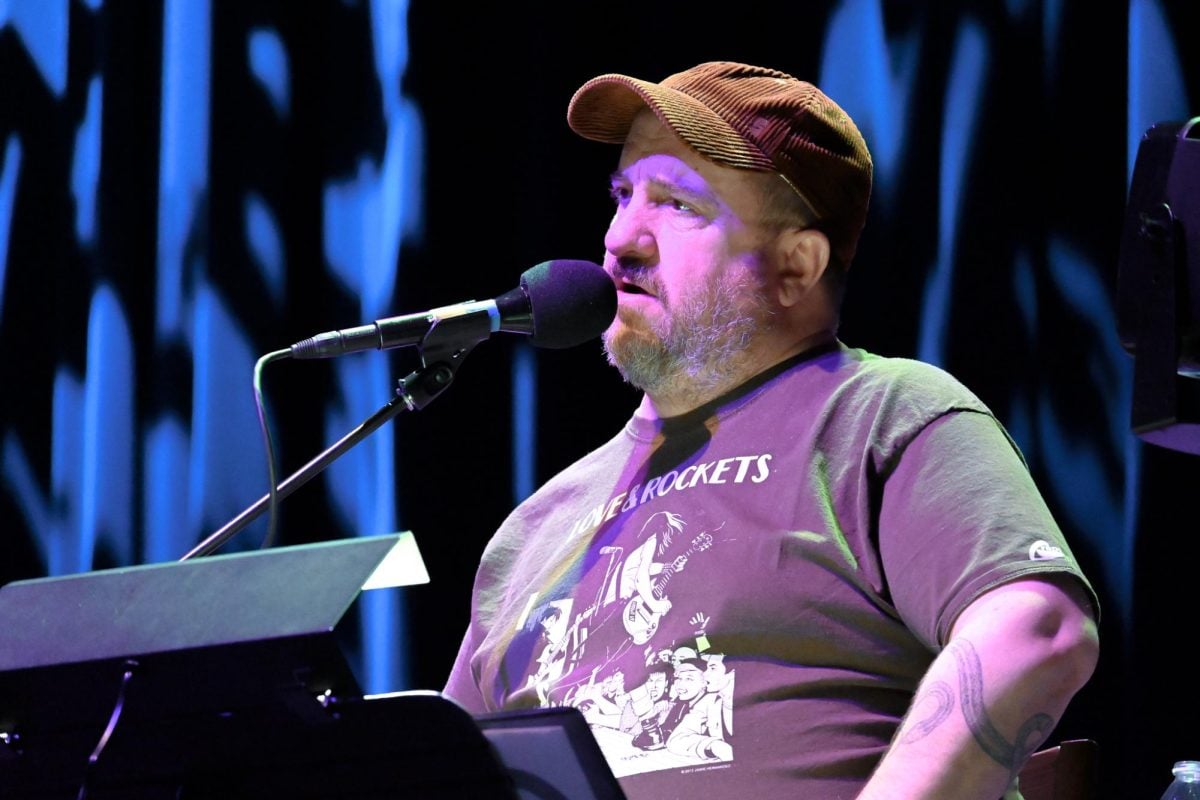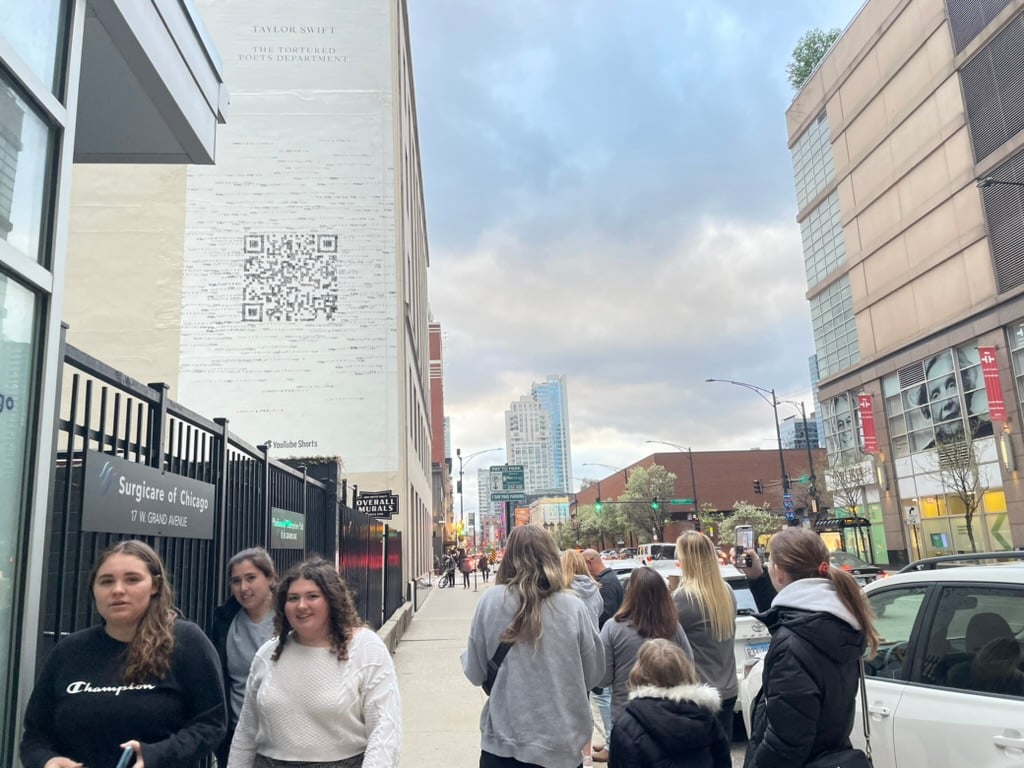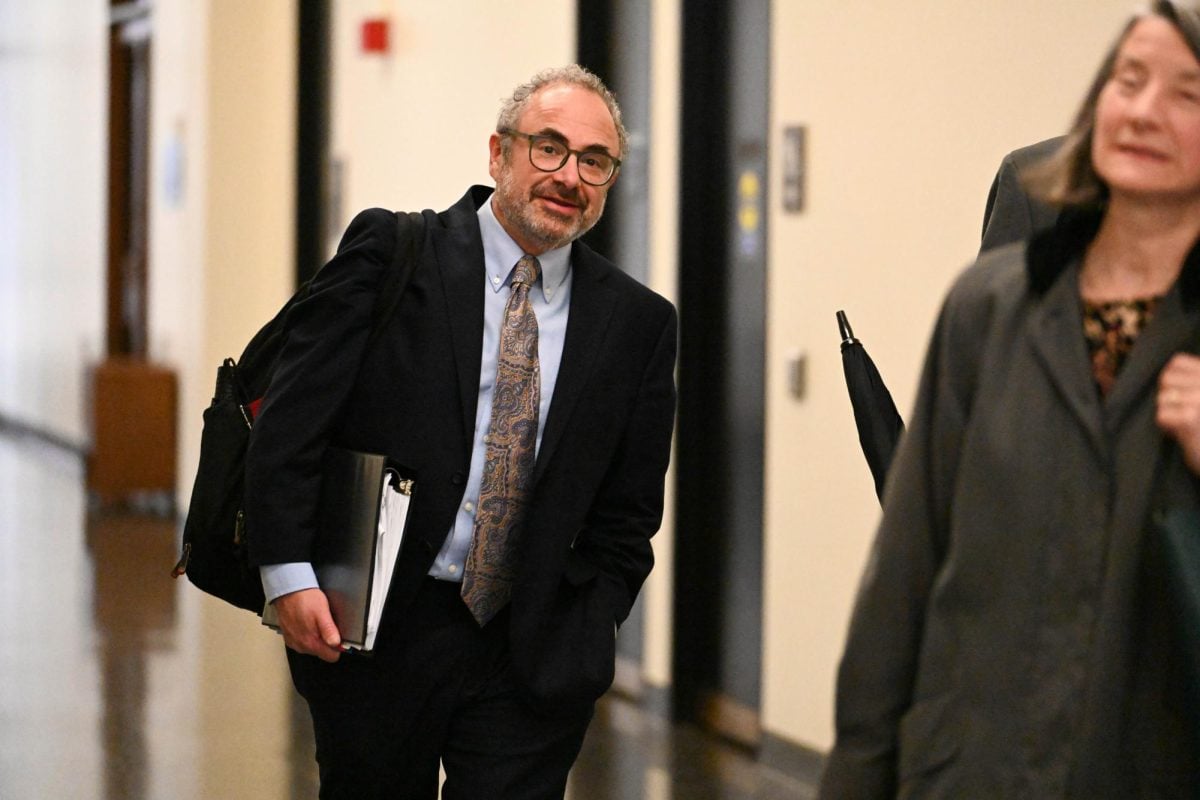More than 300 people filled Harris Hall to capacity Tuesday to listen to Tony Kushner, a Pulitzer, Emmy and Tony award-winning playwright and screenwriter talk about the value of liberal arts, the integration of politics into writing and his famous works.
Kushner was interviewed by english and gender and sexuality studies Prof. Nicholas Davis. The audience also had the opportunity to ask Kushner questions following the discussion.
Davis began by asking Kushner about his formative experiences as a screenwriter and the incorporation of political ideas into his writing. Kushner graduated from Columbia College in New York City with a degree in Medieval Studies in 1978, and his love for history helped influence his future works. Ultimately, Kushner acknowledged that theater has a power, but a very indirect one.
“If you want to see anything happen in the world, you have to go out and make things happen,” Kushner said. “Theater is an engine for teaching critical consciousness. Activism is a job that everybody has.”
Kushner was brought to Northwestern as part of the Contemporary Thought Speaker Series, which works to bring and to present ideas of nationally known intellectuals on campus in order to create meaningful dialogue. It dates back to the early 20th century, when former Prof. Baker Brownell taught the eponymous class to help students organize their educational experiences into a coherent whole. It was brought back as a speaker series in 2012 and is led by Weinberg junior Joe Eichenbaum in conjunction with the Office of the President, the Division of Student Affairs and the Office of the Provost.
“The series has grown in the sense that we’ve brought more speakers every year,” Eichenbaum said. “The committee has more majors represented than ever, and the quality of the speakers has gone up.”
This was not the first time that Kushner visited NU. He received an honorary doctorate in Humane Letters from NU in 1998, spoke to students in 2002 and, as a high school student, even attended the Northwestern Debate Institute, a part of the University’s pre-college Cherubs program.
“I’ve had a long history with Northwestern,” Kushner told The Daily after the event. “I always love coming here. It’s an amazing school, and the students are always really impressive.”
After exploring his formative years, Davis asked Kushner about his works, from one of his first plays, “A Bright Room Called Day” to what many call his magnum opus, “Angels in America: A Gay Fantasia on National Themes,” and some of his most recent work in screenwriting, including the critically acclaimed “Lincoln.” Kushner said he believes in the depiction of specific historical events rather than a general topic in order to make a point. The seven-hour epic “Angels in America,” for example, concerns itself with the AIDS epidemic in New York City.
“It’s all about history. It’s all about specificity, which will speak in a universal, timeless way,” Kushner said. “The easiest way to become irrelevant is to try and engineer immorality in your work.”
Weinberg freshman Gabriela Dago saw “Lincoln” when it came out 2012. She said the film really resonated with her, so she decided to listen to what Kushner had to say.
“What he said about not trying to be timeless with your work was really powerful,” Dago said. “Whenever you produce something, even as a student, you really have to trust that your audience will be curious enough to understand the nuances and subtleties of your work. There’s no need to try to overstate your view with what you’re trying to produce.”
Email: [email protected]
Twitter: @jgerez_news

